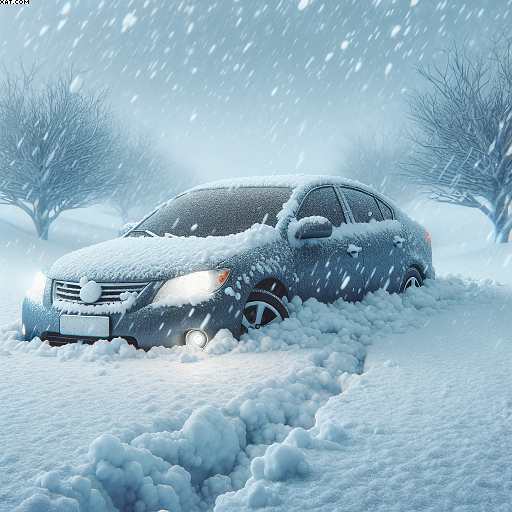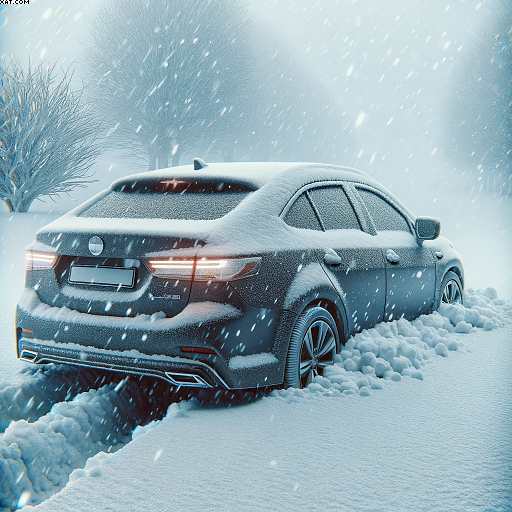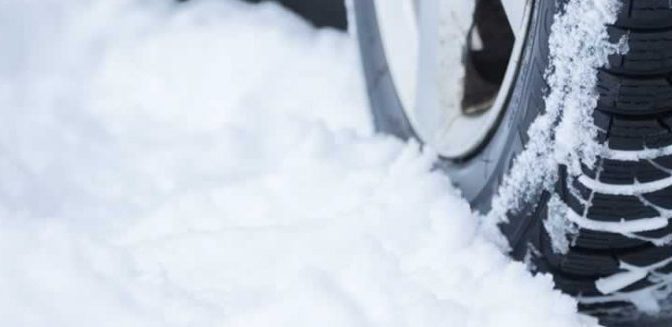Table of Contents
Advantages of Winter Tyres

Advantages of Winter Tyres
Winter has well and truly arrived in the UK, hasn’t it?
The heavy snowfall in many places can really throw a spanner in the works for us motorists. It’s like Mother Nature decided to give us a bit of a challenge, but fear not, because I’ve got a little piece of advice that can make all the difference during these chilly months:
fitting winter tyres. Now, before you roll your eyes and think, “Oh, not another car-related thing to worry about,” let me break it down for you in a way that’s as straightforward as a cup of tea.
Winter tyres are not just another expense;
They’re your best buddy when it comes to staying safe on those icy and snowy roads. Picture this: you’re all snug in your car, ready to head out on a frosty morning, and you hit the road with your regular tyres. But guess what? They’re not cut out for the winter wonderland out there. You’ll find yourself slipping and sliding like a penguin on a dance floor. Trust me, it’s not a great feeling.
So, why winter tyres, you ask? Advantages of Winter Tyres
Well, these specialised wonders are designed to tackle the cold season head-on. They’ve got a unique rubber compound that stays flexible in low temperatures, ensuring you get proper grip on icy and snowy roads.
That means fewer heart-pounding moments when you hit the brakes. But that’s not all, folks. Winter tyres also have a deeper tread pattern, which helps them bite into the snow and slush, giving you better traction. It’s like they’ve got mini crampons on the soles—perfect for our frosty British roads.
Now, I know what you’re thinking
“Do I really need winter tyres in the UK? It’s not like we’re in the Alps.” True, we might not have Alpine peaks, but our lovely British weather can throw some curveballs, can’t it? And when it does, having winter tyres can be a game-changer. Let’s talk about safety for a minute.

Winter tyres aren’t just about convenience;
They’re about keeping you and your loved ones safe. When the roads get slippery, your regular tyres might as well be roller skates on an ice rink. Winter tyres significantly reduce the risk of accidents, and isn’t that what we all want? Plus, think about it this way:
Investing in winter tyres is like having an insurance policy for your car’s safety.
They might cost a bit upfront, but they can save you from costly repairs or, worse, a nasty accident. Now, I can almost hear the grumbling about expenses, but here’s the thing: winter tyres aren’t just for one season.
If you switch back to your regular tyres in the warmer months, your winter tyres will last longer, giving you more bang for your buck. It’s like having a pair of well-worn boots for the snow and swapping them out for comfy sneakers in the summer.
So, my friends, Advantages of Winter Tyres
if you’re looking to stay safe and sound on the UK’s winter roads, consider fitting those trusty winter tyres. They’re not just a luxury; they’re a necessity. And remember, it’s all about keeping things cool, just like a snowman in your driveway. Stay safe out there!
When winter arrives, the cold temperatures, slushy roads, and snowfall can make driving more dangerous. To be safe on the roads in winter weather, it is important to have the right kind of tyres.
Advantages of Winter Tyres, are specifically designed for cold and wet weather conditions and offer better grip and handling than all-weather tyres. Winter tyres are made of a special rubber compound that stays flexible even in sub-zero temperatures, allowing them to maintain their grip on slick surfaces like ice and snow.
They also have wide grooves, which allow them to channel away water and slush more effectively, reducing the risk of hydroplaning. Furthermore, winter tyres feature small, jagged slits in their tread that help create extra traction when driving on snowy or icy roads. When winter arrives, the combination of these features gives winter tyres a significant advantage over all-weather tyres.
Skiers should use winter tyres
Of course, skiers should absolutely use winter tyres on their cars when travelling to their destination. This is because winter tyres are designed to provide superior grip and braking performance in icy, snowy, and wet conditions.
Winter tyres are made from a softer rubber compound that stays flexible in cold temperatures, allowing them to better bite into the snow and ice for enhanced traction.
They also feature a unique tread pattern that helps disperse water and slush from under the tyre for improved grip. Furthermore, these tyres have more sipes (small slits) to provide extra biting edges for better traction when driving on snow or ice-covered roads.
As a result of their superior design, winter tyres provide skiers with a safer and more comfortable driving experience when travelling in winter conditions.
Law in some countries
Importantly, In some countries, it is actually the law to fit winter tyres during the winter months. This is to ensure that drivers have the appropriate levels of grip and traction when it comes to driving on icy and snow-covered roads.
The tyres are designed to provide better grip on icy surfaces as well as increased braking force, allowing drivers to remain safe while driving in winter conditions. Winter tyres are made from special rubber compounds that remain flexible in temperatures below 7 °C, meaning that they can still provide traction even when the temperature drops below freezing.
Additionally, winter tyres also feature special tread patterns
that are designed to disperse water more efficiently, thus reducing hydroplaning and providing better grip when driving in wet conditions. Furthermore, they also feature a deeper tread depth, which provides extra grip on snow- and ice-covered roads. Overall, winter tyres are essential for those driving in cold climates and can greatly improve driver safety during the winter months.
- General Grabber AT3
- Dunlops Racing Tyres
- Michelin Truck Tyres-says accidental damage claim rate demonstrates premium reliability
- Tyre Tread Scam
- Continental Winter Tyres: Braking on Snow a great video
- General Grabber AT3 - October 14, 2025
- Dunlops Racing Tyres - October 13, 2025
- Michelin Truck Tyres-says accidental damage claim rate demonstrates premium reliability - October 12, 2025

